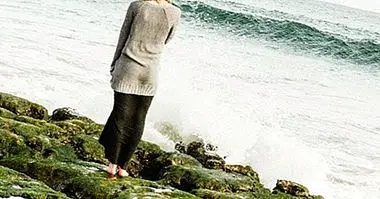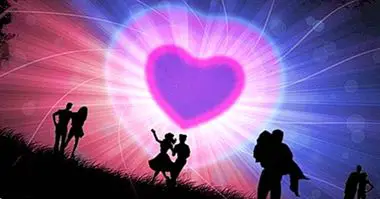Are polar opposites really attracted?
It is often said that Opposites attract .
It is a maxim that many pronounce. When we refer to the friendship we bet on those we consider equal to us, but when we talk about love relationships , the disparity of opinions grows. Moreover, most people believe that we prefer to maintain relationships with very different people. This leads us to ask two questions: do they choose the animals making the same distinction, that is, discriminating if they look for a potential relationship of companionship or a couple to mate?
Are the opposite poles attracted?
The answers illustrate how humans operate on a quasi-instinctive plane when it comes to those judgments.
From the outset, we must point out that animals really constitute friendships between them. In the same way as human beings, some of these friendly relationships may be volatile or stable for many years. Although it is well known that enjoy friendships report certain benefits , it takes time and effort to maintain these links.
Humans may have to face a long list of uncomfortable situations which we only do thanks to this feeling of friendship: answer a call from your friend at two in the morning consoling him for his emotional breakdown. Chimpanzees, for example, can spend long periods delousing the heads of their friends.
Research
Regardless of whether we talk about humans or apes, how do we decide who we want to be friends with? What could be the key: age, gender, social status, personality...?
A recent study investigating the factors that predict friendship relationships among chimpanzees found that Individuals with similar personalities had a greater tendency to be friends . Massen, J. (2013) reported that extroverted chimps were related to extroverts, while more timid individuals did the same with other timid individuals. The black papion primates more playful and sobones interacted with each other. In contrast, the more reserved and distant were more related to each other, but obviously in a manner commensurate with his personality.
Regardless of whether we speak of human beings, chimpanzees, baboons, it is clear that friendship relationships are decided based on similarity.
So, what about romantic relationships? Are we attracted to the opposite?
The answer is do not .
The white-headed bunting (a type of anseriform bird) prefers to mate with specimens of similar size. In the same way, the coalfish (a parsiform bird) does so with individuals with a similar personality. This trend occurs not only in birds, but in humans as well. Despite the popular belief that opposites are attracted, the data show that married couples tend to resemble each other greatly in a variety of traits.
Until a few years ago, researchers they did not know with certainty if the shared features came with the time that was shared as a couple , or they were similar features from before the couple met. A study recently published by Tognetti, Berticat, Raymond and Faurie (2014) has opened new windows to this question. They found that the inhabitants of a rural region of Senegal chose to marry someone who was as cooperative and friendly with others as the individual himself.
Perhaps for this reason in the animal world it is more interesting to mate with other similar individuals in size, personality or other factors. Opposing poles may be attracted, but the trend indicates that we prefer the similar to ourselves.
Plato wrote: "The similarities engender friendship." Did you forget to mention if this maxim also applies to romantic or sexual relationships? Possibly not. Probably this explains why friendship is often, in many cases, the best scenario when it comes to establishing romantic relationships.



















